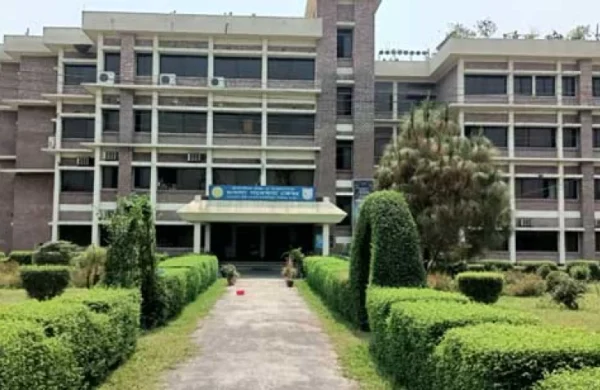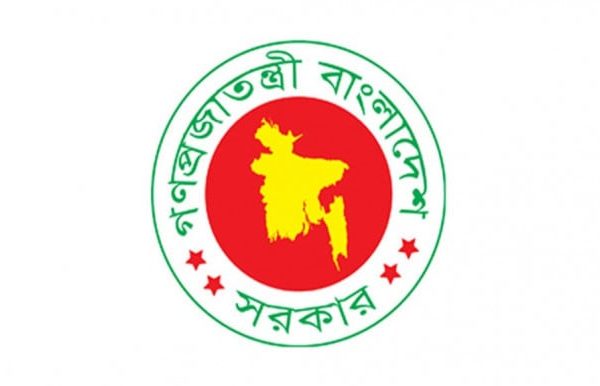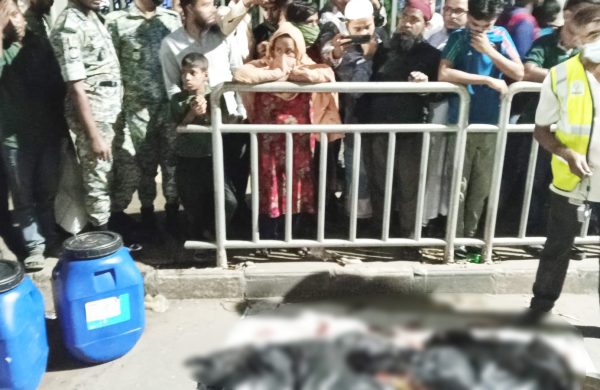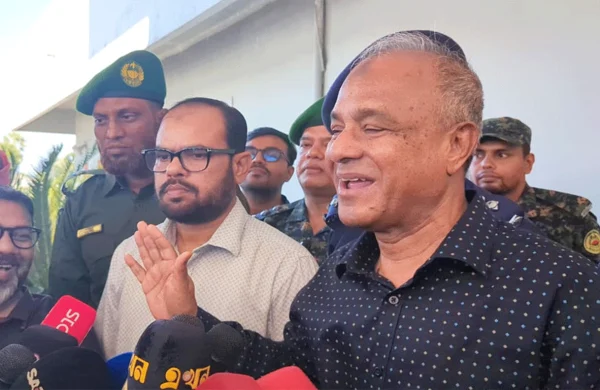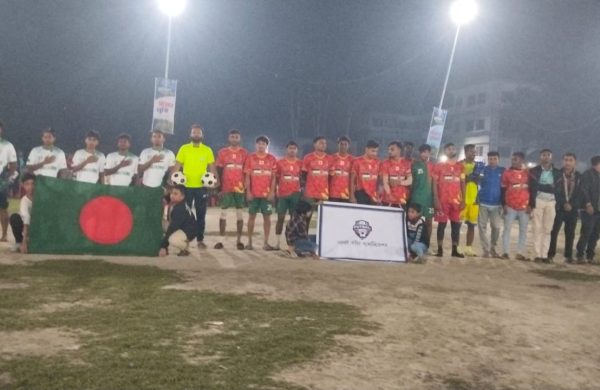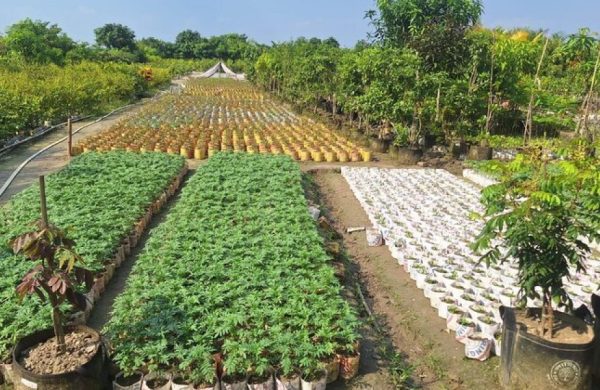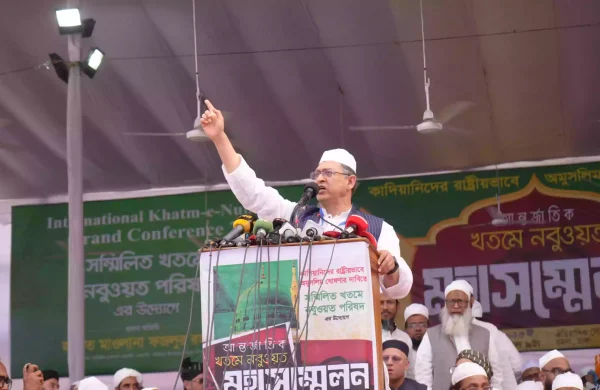Textbook printing: Uncertainty looms over on time supply?
- Update Time : Saturday, November 8, 2025
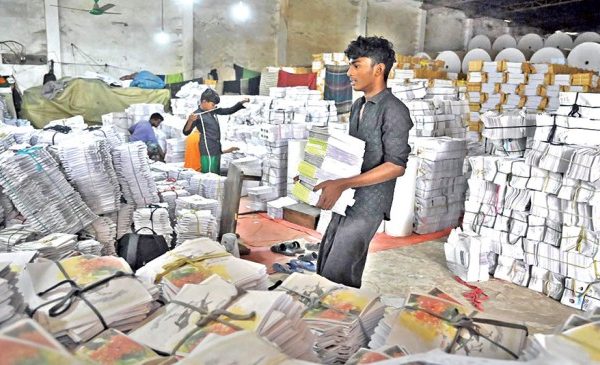
TDS Desk:
Once again, the printing of next year’s textbooks has begun at the very end of the year.
While officials have expressed optimism that primary-level books will reach students on time, uncertainty looms over whether secondary-level students will receive their books at the start of the academic year.
Last year, delays caused by a return to the old curriculum following a political upheaval and related procedural adjustments meant that textbook printing began only in December, and students had to wait until March to receive them.
Learning from that experience, the National Curriculum and Textbook Board (NCTB), the body responsible for overseeing printing, had planned to begin secondary textbook printing by September this year.
But this time, due to a cancellation of tenders and procedural changes, printing for secondary and Ebtedayee-level books began only in early November.
Of the nearly 300 million books to be printed across all levels, 214.3 million are for secondary and Ebtedayee students.
Despite efforts, the NCTB officials admit there is doubt over whether all secondary students will get their books on time.
In contrast, primary book printing is well under way, and officials expect that all 85.9 million books for primary-level students will be delivered to Upazila levels by the end of November.
CURRICULUM CONTROVERSY, EDITORIAL CHANGES
This year’s textbooks will also see the inclusion of the July 1975 military uprising, while the historic March 7 speech by the nation’s founding father Bangabandhu Sheikh Mujibur Rahman has been omitted from several classes.
The NCTB has also announced plans for qualitative improvements in vocabulary and sentence structure in the textbooks.
As in the previous year, all books are being printed domestically. However, this massive task began just as NCTB acting chairman Prof Rabiul Kabir Chowdhury went on post-retirement leave starting Nov 8. When contacted three days earlier, he declined to comment formally and referred the media to the NCTB’s PR officer.
The NCTB’s Public Relations Officer SM Asaduzzaman said he still hopes that all students will receive their books at the beginning of the year.
WHY THE DELAY IN SECONDARY BOOK PRINTING?
The NCTB officials say printing was delayed because the Government Procurement Committee cancelled the initial tenders for grades 6, 7, and 8, resulting in nearly a two-month delay.
“Although we began the process early, the committee cancelled several tenders and made amendments to procurement rules,” said Asaduzzaman to journalists.
“The entire process had to restart, so instead of September, printing began in early November. A few presses have already started printing.”
As of the first week of November, only four presses had begun printing books for grade 9, said the NCTB’s Distribution Controller Mohammad Matiur Rahman Khan Pathan.
“Contracts with publishers are still being finalised. Four presses have begun printing Grade 9 books,” he said.
“For grades 6 to 8, we only received permission to begin printing on the 3rd of November. Some issues with the e-Government Procurement (e-GP) system delayed contract finalisation, but we expect to start within a couple of days.”
Publishers will be given 60 days to print Grade 9 books, with an additional 10 days for other tasks, and 45 days for grades 6 to 8, reduced from the previous 60, with seven extra days for auxiliary work.
CONCERNS FROM INSIDE NCTB
An NCTB official, requesting anonymity, told journalists: “Even though the board hopes to deliver all books on time, realistically, it’s unlikely that all secondary students will receive them at the start of the year.”
For Ebtedayee students, about 40 percent of books have already been printed, according to Matiur Rahman.
At the 32nd meeting of the Government Procurement Advisory Committee on Aug 19, the printing orders for secondary textbooks for grades 6 to 8 were not approved.
THE CANCELLED TENDERS INCLUDED:
Grade 6: 97 lots, 43.2 million books, worth Tk 1.8 billion
Grade 7: 94 lots, 39 million books, worth Tk 2 billion
Grade 8: 89 lots, 36.6 million books, worth Tk 2.23 billion
Altogether, 280 lots worth Tk 6 billion were cancelled.
Asked why, the NCTB’s Asaduzzaman said: “The procurement committee can cancel tenders without providing a reason, and that’s what they did. They also revised the rules to allow international organisations to participate.”
BOOKS TO REACH UPAZILAS BY NOVEMBER
Under the Awami League government, a tradition began in 2010 of handing over textbooks to students on the first day of the school year with festive celebrations.
This practice continued in subsequent years.
After the government change, the cycle, however, was disrupted.
At the start of this year, schools did not hold such ceremonies. Teachers were only able to distribute textbooks for some subjects to students of classes nine and ten.
This year, preparations to provide all primary students with textbooks at the beginning of the year have begun in advance.
Asaduzzaman and NCTB Production Controller Abu Naser Tuku have said the textbooks will be sent to all Upazilas by November.
Naser told journalists that a total of 85.93 million copies of textbooks will be printed for pre-primary and primary students from grades one to five. By Nov 5, 68.14 million copies had been bound, accounting for 79.3 percent of the total.
A total of 57.29 million books had received distribution clearance, representing 66.68 per cent of the total. So far, 49.38 million books, or 57.46 percent, have been delivered, he noted.
“We hope that by the end of November, all pre-primary and primary textbooks will be sent to Upazilas,” he said.
DOMESTIC PRINTING
Although the Advisory Council Committee on Government Purchase amended rules to allow international firms to print textbooks, all textbooks for the upcoming year are being printed by local institutions.
Asaduzzaman said, “No foreign company participated in the tender process, so local firms are handling 100 per cent of the printing again this year.”
He added that last year’s textbook printing was also undertaken entirely by domestic institutions.
‘QUALITATIVE CHANGES’
Next year’s textbooks will include several ‘qualitative changes,’ Asaduzzaman said.
“The NCTB and education ministry have held meetings with teachers, academics, and stakeholders to bring several qualitative changes to the textbooks,” he added.
“Stakeholders recommended improvements in word choice and sentence structure to make reading more pleasant, and the books have been revised accordingly.”
MAR 7 SPEECH OUT, JULY UPRISING IN
A separate chapter on the July uprising will be included in next year’s history section of the “Bangladesh and Global Studies” textbooks for grades three to nine.
According to Asaduzzaman, the chapter will also cover the 1990 Mass Uprising to maintain historical continuity. The inclusion of the July Uprising was based on stakeholder recommendations.
The Mar 7 speech of Sheikh Mujib will be removed from the eighth-grade Bangla textbook following objections from stakeholders and recommendations by the National Curriculum Coordination Committee (NCCC).
Similarly, the speech will also be removed from the “Three Speech” section in the eleventh and twelfth-grade English textbooks in line with NCCC recommendations, he added.


